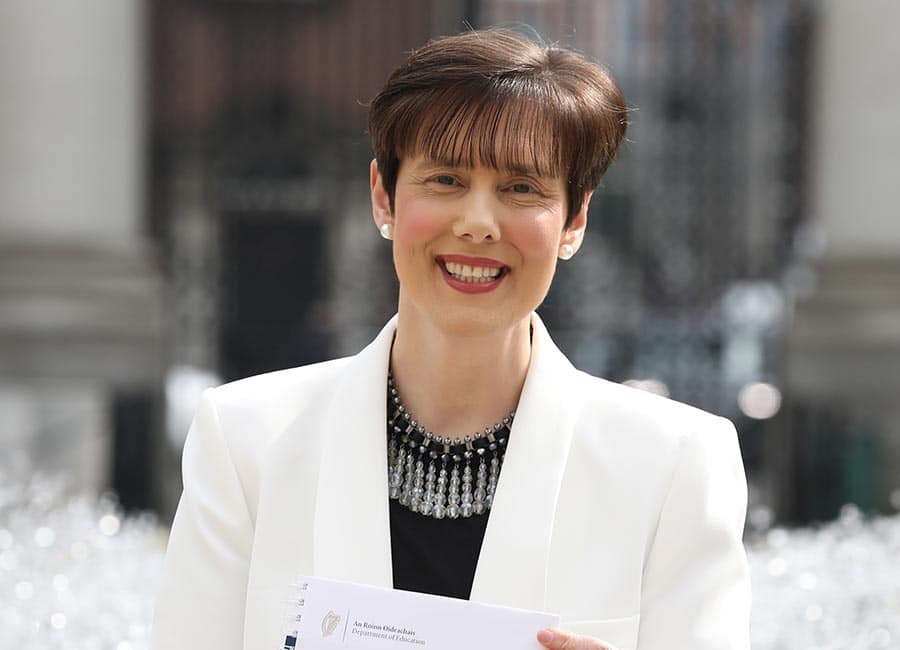Teachers are seeking a salary boost of up to €6,000 a year which could set the exchequer back €280m on average across the three unions.
While plans for industrial action have been shelved pending pay talks, the taxpayer is set to fork out even more as public sector workers seek pay increases of up to 8% to combat the soaring costs of living.
Education minister Normal Foley - who was heckled by teachers at a conference in Killarney yesterday - was told the government's pay agreement with teachers "is due to collapse very, very soon" unless improvements are made.
Union representatives said a pay rise of between 6% and 8% may be sought - in line with current levels of inflation - which would amount to a cost to the exchequer of an estimated €280m on average for all primary and secondary school teachers across the three unions.
But the minister told teachers that the whole of society is struggling with price rises - not just one sector.
Teachers at a minimum are paid €36,290 rising to €71,503 depending on their level of service. A 6% pay rise on the former salary would amount to €2,177 annually, rising to €2,903 at 8%, before tax, while at the highest salary, an 8% pay rise would mean €5,720, or €4,290 at 6%.
The country's three teacher unions - the Association of Secondary Teachers Ireland (ASTI), Teachers' Union of Ireland (TUI) and Irish National Teachers' Organisation (INTO) - are currently all holding their individual three-day annual conferences - where pay rises are to the fore.

INTO general secretary John Boyle yesterday warned Ms Foley that teachers need a "pay uplift".
"Our members have been locked out of affordable housing as rents skyrocketed by another 10% last year," he said. "When the [pay] agreement was negotiated 16 months ago, inflation was below 2% and was not expected to rise. Inflation has now spiralled out of control."
"Every teacher's household is feeling the pinch," he continued. "Yet, our members are promised a measly 1% uplift next October. It will not suffice. We will fight tooth and nail to get this in the south and in the North."
The TUI also passed a motion yesterday calling on the Government to take action on pay.
ASTI general secretary Kieran Christie said a "substantial" rise in pay is being sought, and that the amount being demanded will be based on the outcome of negotiations under the Public Service Agreement with the Government.
Government sources said that a date has not been set for Public Expenditure Minister Michael McGrath to meet unions to discuss a new public pay agreement.
It is anticipated a date for talks will be set in the "relatively near future" and that discussions could begin in weeks. Sources could not predict if a deal could be struck ahead of the Dáil's summer recess in July as it "depends what is put on the table".
John King, secretary of the Irish Congress of Trade Unions (ICTU) Public Services Committee, said: "We don't have a specific figure [for pay rises]. We want to hear from the Government side what their position is." Meanwhile, Higher Education Minister Simon Harris said a new pay agreement was needed by the end of the year.
"Let's get in the room and let's have that discussion about how we hammer out a pay deal for public servants before the end of the year," he told the TUI conference yesterday in Wexford.
However, Mr Christie, of the ASTI, said the rise they are seeking would be in the region of 6% to 8%, in line with cost-of-living increases - which would amount to just under €3,000 on the most basic teacher's salary and upwards of €6,000 for top earners with the most years' service.
ASTI members yesterday agreed to defer a proposal to ballot for industrial action on a range of pay issues, agreeing to first allow the ICTU and the Department of Public Expenditure and Reform to work on solutions.
Ms Foley told the INTO conference that the Government "is strongly aware of price pressures being felt across all of society at the moment".
She also said that all measures brought in by Government, such as energy support and VAT reductions, must also be considered.
Ms Foley was heckled during a speech to the ASTI as she addressed Government plans to reform the Leaving Cert process.
She faced shouts from the floor as she discussed planned reforms, with ASTI vice-president Miriam Duggan forced to intervene to ask delegates not to interrupt the minister. Despite the heckles, Ms Foley was applauded at the end of her address.
The dispute over pay scales and its impact on staff recruitment and retention in the profession, in relation to the two-tier pay system introduced in 2011, dominated all three conferences.
Both the ASTI and TUI agreed to forego a 1% pay increase that was due in February under sectoral bargaining as part of the Building Momentum agreement, to help eliminate unequal pay scales.








